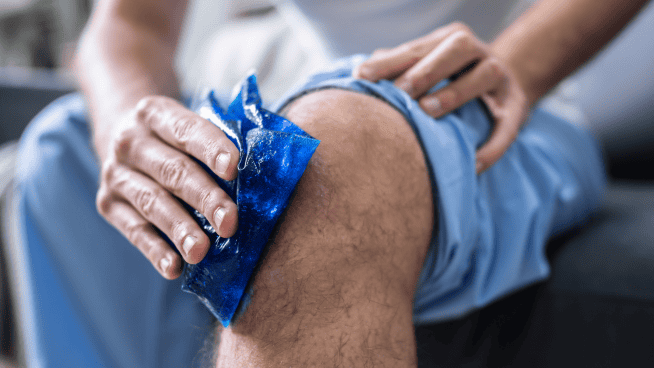BPA: A Hazard to Athletes
BPA (bisphenol A), a chemical commonly found in plastic water bottles, can liners and even mouth guards, can be detrimental to athletic performance. (See BPA: Health Hazard In Your Water Bottle?)
A report by the National Toxicology Program recently expressed “some concern” for how BPA affects the healthy, normal development of children, and how they can play. BPA is a hazard, but there are ways to minimize its dangerous effects, or avoid it altogether. Take action today.
Choose products that are BPA-free
Companies that manufacture or use cans that don’t contain the harmful chemical proudly label their products as such. If you don’t see a “BPA-free” label, it’s safe to assume that the product contains BPA.
Don’t purchase products labeled with the “number 7” symbol
Often located on the bottom of plastic products, a recycling number specifies what kind of plastic is used. Products with the number 7 most likely contain BPA.
Avoid using plastic containers in the microwave
Heating food in plastic storage containers allows BPA to leach into your food. If the plastic product is scratched or worn, higher levels of leaching can occur. When microwaving food, use ceramic or glass containers to avoid contaminating your food.
Hand-wash plastic containers
In combination, harsh dishwasher detergents and the high temperature settings of dishwashers create the perfect storm for toxicity. If you must use plastic containers, wash them by hand with a gentle, non-toxic dishwashing solution.
Gradually replace harmful products
Instead of using plastic food-storage containers, choose glass, ceramic, porcelain, or stainless steel instead. At the very least, replace your worn, plastic water bottle with a stainless steel one.
Opt for fresh and frozen foods
Since most BPA-free canned food is also higher in price, your budget may not allow the widespread adoption of BPA-free canned foods. Fresh or frozen foods are good alternatives. Limit your consumption of canned foods lined with BPA.
Increased awareness of BPA and its hazards has led to more BPA-free products. The more consumers demand them, the easier it will be to find them. With a little foresight, start your transformation to a BPA-free environment. It will not only be good for you in general, but also as an athlete. Stay BPA-free or at least reduce your exposure.
RECOMMENDED FOR YOU
MOST POPULAR
BPA: A Hazard to Athletes
BPA (bisphenol A), a chemical commonly found in plastic water bottles, can liners and even mouth guards, can be detrimental to athletic performance. (See BPA: Health Hazard In Your Water Bottle?)
A report by the National Toxicology Program recently expressed “some concern” for how BPA affects the healthy, normal development of children, and how they can play. BPA is a hazard, but there are ways to minimize its dangerous effects, or avoid it altogether. Take action today.
Choose products that are BPA-free
Companies that manufacture or use cans that don’t contain the harmful chemical proudly label their products as such. If you don’t see a “BPA-free” label, it’s safe to assume that the product contains BPA.
Don’t purchase products labeled with the “number 7” symbol
Often located on the bottom of plastic products, a recycling number specifies what kind of plastic is used. Products with the number 7 most likely contain BPA.
Avoid using plastic containers in the microwave
Heating food in plastic storage containers allows BPA to leach into your food. If the plastic product is scratched or worn, higher levels of leaching can occur. When microwaving food, use ceramic or glass containers to avoid contaminating your food.
Hand-wash plastic containers
In combination, harsh dishwasher detergents and the high temperature settings of dishwashers create the perfect storm for toxicity. If you must use plastic containers, wash them by hand with a gentle, non-toxic dishwashing solution.
Gradually replace harmful products
Instead of using plastic food-storage containers, choose glass, ceramic, porcelain, or stainless steel instead. At the very least, replace your worn, plastic water bottle with a stainless steel one.
Opt for fresh and frozen foods
Since most BPA-free canned food is also higher in price, your budget may not allow the widespread adoption of BPA-free canned foods. Fresh or frozen foods are good alternatives. Limit your consumption of canned foods lined with BPA.
Increased awareness of BPA and its hazards has led to more BPA-free products. The more consumers demand them, the easier it will be to find them. With a little foresight, start your transformation to a BPA-free environment. It will not only be good for you in general, but also as an athlete. Stay BPA-free or at least reduce your exposure.











